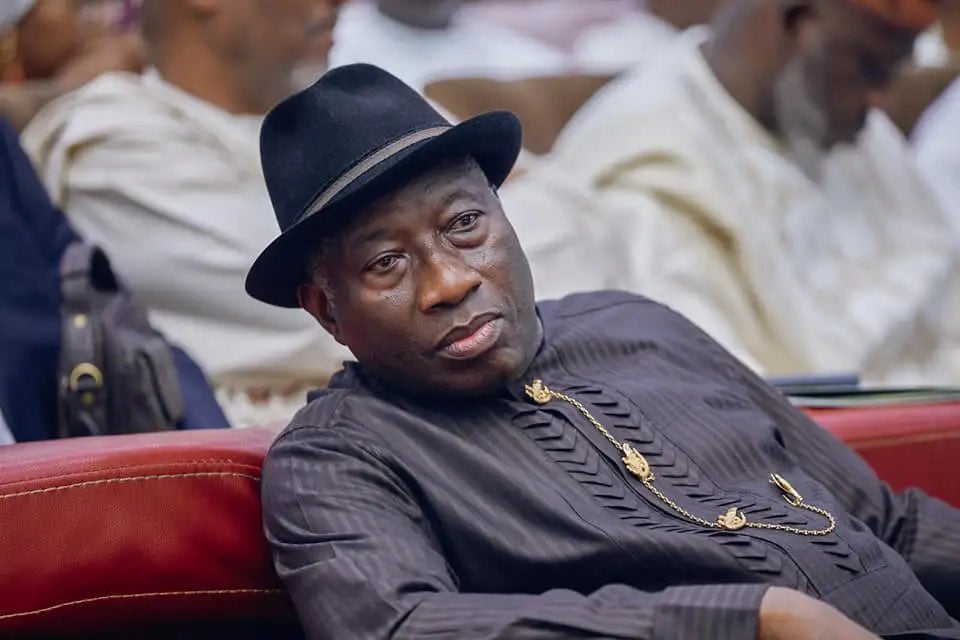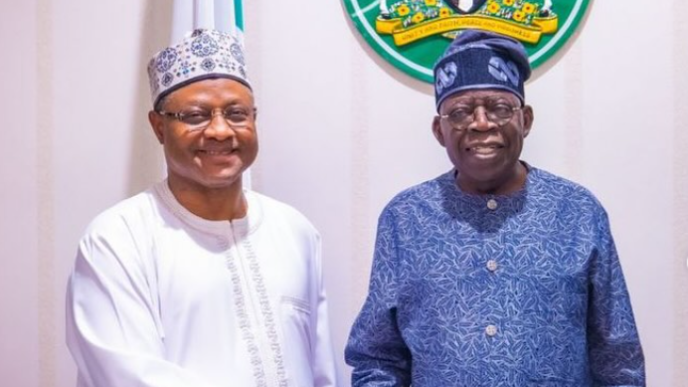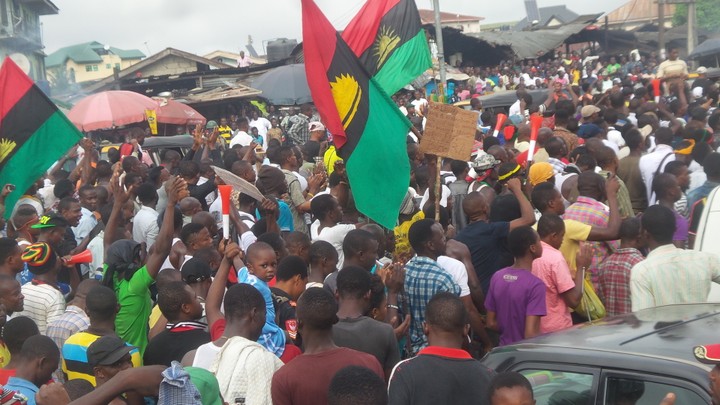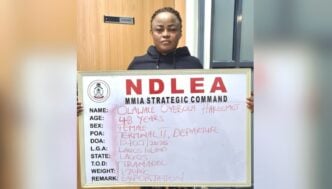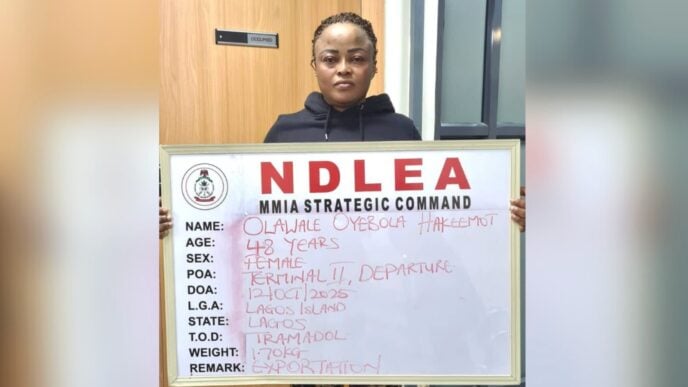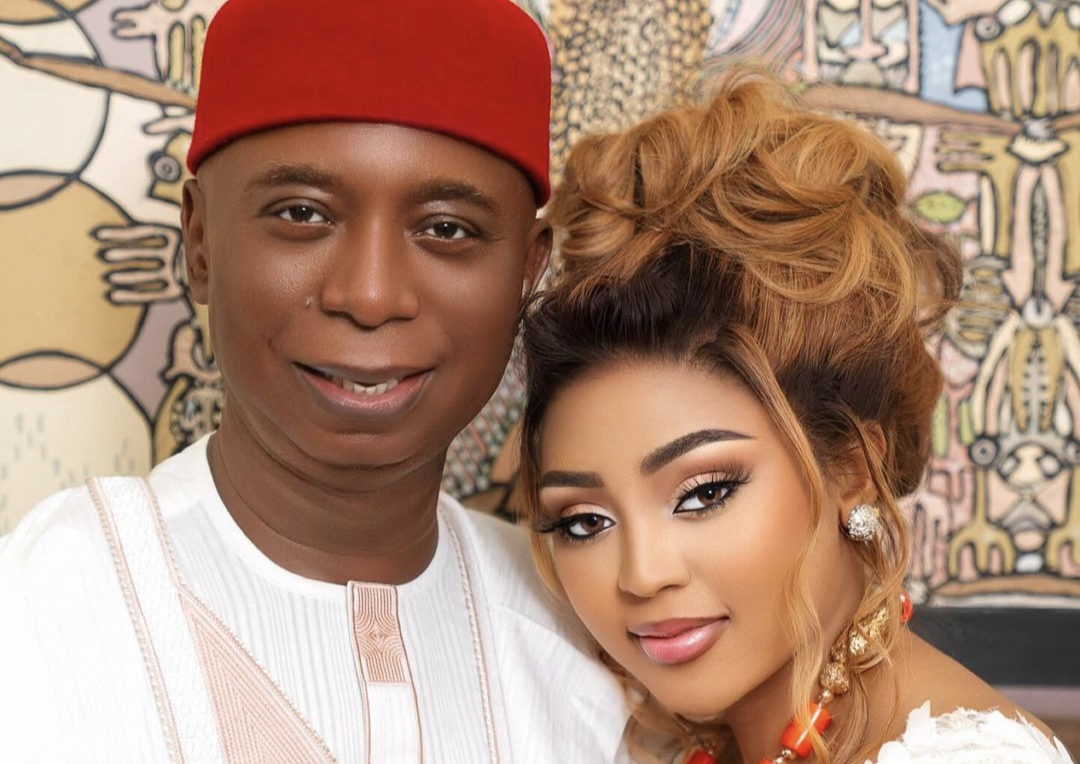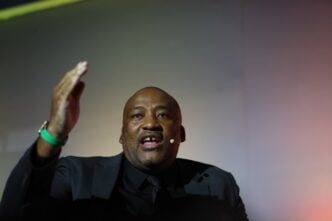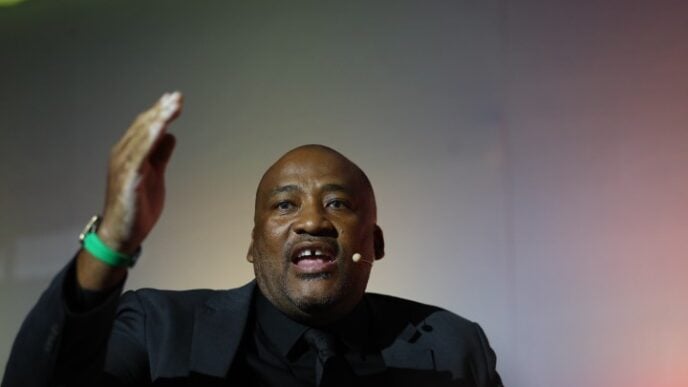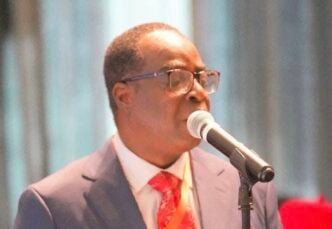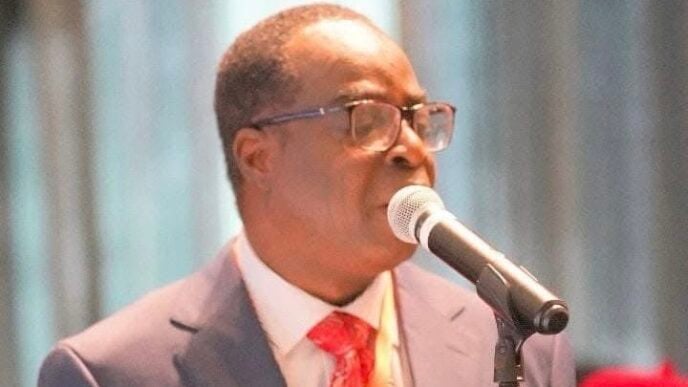Goodluck Jonathan, former president of Nigeria
Few Nigerian politicians have navigated the peaks and valleys of power like former President Goodluck Jonathan. From his unexpected leap to the presidency in 2010 following Umaru Musa Yar’Adua’s death to his own election victory in 2011 and then his unprecedented concession of power in 2015, he has written a chapter in the nation’s democratic history.
His famous phone call to Muhammadu Buhari, conceding defeat — before the final results were declared by the Independent National Electoral Commission (INEC) — earned him global applause.
In the years that followed, Jonathan largely embraced the role of a statesman, focusing on election monitoring, especially in West Africa.
Since the 2015 poll, Jonathan’s name has consistently surfaced during every general election, with speculation about a possible comeback. By law, Jonathan is eligible for another term in office, having served only a single four-year term.
Advertisement
As the 2027 election draws nearer, those whispers are once again echoing through the corridors of power.

In August, some chieftains of the PDP, including Bala Mohammed, governor of Bauchi and chair of the governors’ forum, and Abba Moro, senator representing Benue south, said that the opposition party had been courting Jonathan to vie for its presidential ticket.
Weeks later, Jerry Gana, a founding member of the PDP and former minister of information, spoke more confidently about it, asserting that Jonathan would contest the 2027 presidency under the party’s platform. Gana’s assertion conveyed a tone of certainty.
Advertisement
However, the PDP national working committee (NWC), through its spokesperson, Debo Ologunagba, disowned the claim, stating that no such decision had been made.
Last month, Jonathan attended a high-profile meeting with leaders of the African Democratic Congress (ADC) coalition, reigniting speculation about his possible presidential ambitions.
JONATHAN’S YEARS IN OFFICE

Jonathan’s five years as president were marked by both progress and shortcomings.
Advertisement
On the positive side, analysts say Jonathan presided over a period of relative economic stability, buoyed by high oil prices. His government pursued agricultural reforms under Akinwumi Adesina, now president of the African Development Bank (AfDB), which improved farmers’ access to fertiliser and boosted production.
His administration also encouraged growth in telecommunications and entrepreneurship, expanded gender inclusion, and appointed women to key government positions — Ngozi Okonjo-Iweala at finance and Diezani Alison-Madueke at petroleum were key to this feat.
Political pundits say one of Jonathan’s most significant contributions to the country was in electoral reform. They say his appointment of Attahiru Jega as INEC chairman led to innovations that made elections more credible.
Yet, his government had clear failings. The Boko Haram insurgency escalated dramatically, culminating in the Chibok schoolgirls’ abduction in 2014 that shook the world.
Advertisement
On October 3, Jonathan admitted that the abduction of the Chibok schoolgirls remains a permanent scar on his administration and personal life.
“It (the abduction) is a scar I will die with. But perhaps later, more details may become known, and that too has to do with Boko Haram,” Jonathan said.
Advertisement
His administration was also marked by corruption scandals, especially in the fuel subsidy regime. Although oil revenues were high, diversification efforts did not take root.
Jonathan’s leadership style was often described by critics as indecisive, a perception his opponents weaponised successfully in 2015. Critics argue that he was too trusting, slow, and weak to address the country’s structural challenges.
Advertisement
Today, as Nigerians endure economic hardship and insecurity, some look back on Jonathan’s tenure with nostalgia, remembering when a litre of petrol cost less than N200. The PDP often contrasts commodity prices under the current administration with those during Jonathan’s era in the party’s statements on the nation’s state.
A PARTY SEARCHING FOR DIRECTION
Advertisement
Ten years since it lost power, the PDP has been caught in a cycle of reinvention and relapse. Once the dominant party that boasted it would rule for sixty years, it has struggled to produce a coherent strategy for a comeback.
Atiku Abubakar, former vice-president, flew the party’s flag in 2019 and 2023 but lost both times. His northern candidacy also deepened tensions among southern members who felt they had been short-changed.
Ahead of the 2027 elections, the national executive committee (NEC) of the PDP has zoned the presidential ticket to the south, putting to rest speculation and agitation.
Before the zoning decision, Mohammed and other northern figures had indicated interest in the party’s presidential ticket. With the matter now settled, the party seems to have found a clearer direction.
Seyi Makinde, governor of Oyo, is one southern PDP member reportedly eyeing the party’s presidential ticket, while Mohammed has signalled interest in the vice-presidential slot.
But Jonathan’s name has continued to reverberate as a stronger choice for the party. He is seen as above the fray, not desperate for power, and less threatening to ambitious younger politicians since he can only serve one more term.
THE ADC FACTOR AND COALITION POLITICS
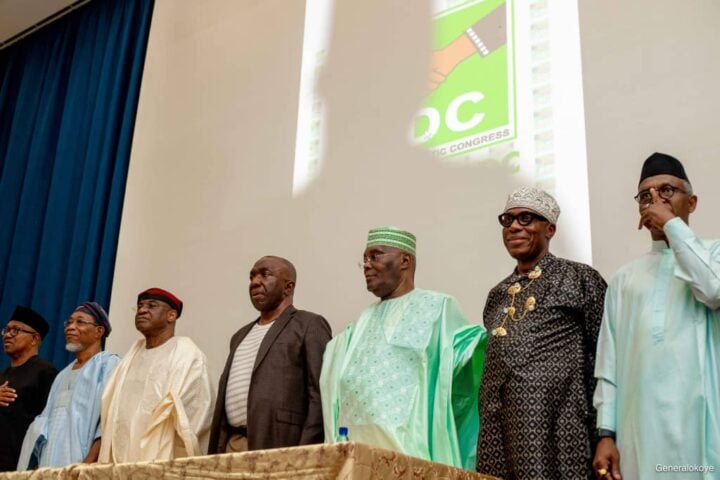
Jonathan’s recent meeting with ADC coalition leaders in Abuja signalled that he is not closing doors.
Since its formation in July, the ADC coalition has demonstrated strong opposition, holding the All Progressives Congress (APC) and President Bola Tinubu’s administration accountable for every policy, giving them no breathing space — something the PDP has been doing feebly, despite touting itself as the biggest party in sub-Saharan Africa.
For Jonathan, meeting the coalition leaders could, among other things, be a tactical move to remind PDP that he has options.
Running on the ADC platform presents him with slimmer odds. Atiku, who played a key role in forming the ADC coalition, has repeatedly declared his intention to clinch the party’s ticket. He also has the war chest required to secure it.
Still, the likelier scenario is that Jonathan remains PDP’s asset. His ADC appearance may have been more about leverage —an attempt to keep PDP leaders attentive to his potential value.
ONE-TERM ARGUMENT
One strategic card in Jonathan’s favour is his constitutional limit to one more term. Unlike ambitious politicians such as Rotimi Amaechi and Peter Obi, who must convince voters with their promises of serving only a single term, Jonathan requires no such assurance. He has already completed one term, and the constitution makes a third impossible.
But for voters, this argument may not be compelling. Nigerians facing high inflation, unemployment, and insecurity are not looking for a transitional presidency. They want bold reforms and fresh energy.
‘PDP DESPERATE TO REGAIN RELEVANCE’
Mark Adebayo, spokesperson of the Coalition of United Political Parties (CUPP), said the PDP’s renewed interest in Jonathan is a desperate attempt to regain relevance.
He said after failing to persuade Peter Obi, the Labour Party (LP) presidential candidate in 2023, to return, the party is now turning to Jonathan as another option to stay afloat amid its declining influence.
“The PDP is desperate to regain its relevance. It’s like a sinking ship looking for a way to stay afloat,” he told TheCable.
“The PDP has been injured and is bleeding badly. If PDP is as strong as it was in 2019, it would be able to win the 2027 election because the economy is so bad and terrible that Tinubu is probably the most unpopular president Nigeria has ever had.”
BRIDE OR BURDEN?
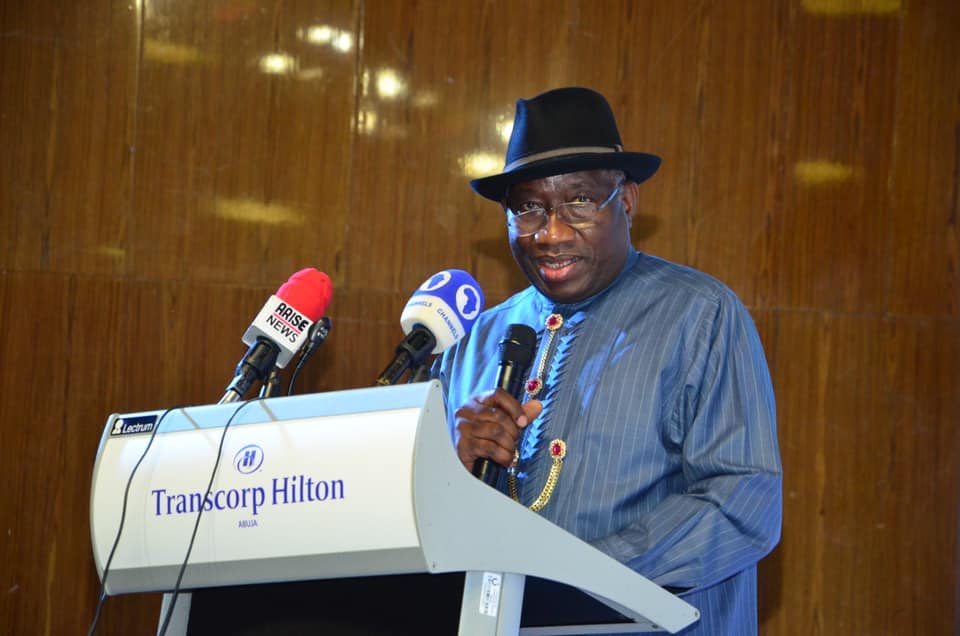
The big question is whether Jonathan is electable in 2027, though he has yet to make any public comment on his intention to run.
Jonathan’s strengths are evident: women remember his promotion of female leaders, his Niger Delta base remains deeply loyal, and internationally, he commands respect. To Nigerians fatigued by the APC’s combative style, he could present a calming alternative.
Yet his weaknesses are just as pronounced. Young Nigerians, who make up the majority of the electorate, remain sceptical, viewing him as a recycled choice in a country yearning for fresh leadership.
As speculation about his comeback grows, the APC and the presidency have begun branding him as weak, indecisive and reminding the public of his past shortcomings.
His candidacy risks portraying the PDP as backwards-looking rather than forward-thinking.
The clash between nostalgia and the desire for renewal may be the ultimate test of his electability. Will fond memories of relative economic stability during his tenure outweigh lingering frustrations over his shortcomings?
Jonathan’s return to political discourse speaks more to the PDP’s identity crisis than to his own ambition. His name has become a stand-in for the party’s unresolved tensions.
Whether Jonathan becomes the PDP’s “beautiful bride” in 2027 will depend on what the party ultimately decides — renewal or simply survival.
As things stand, Jonathan remains the beautiful bride whose decision may shape the path to 2027.
